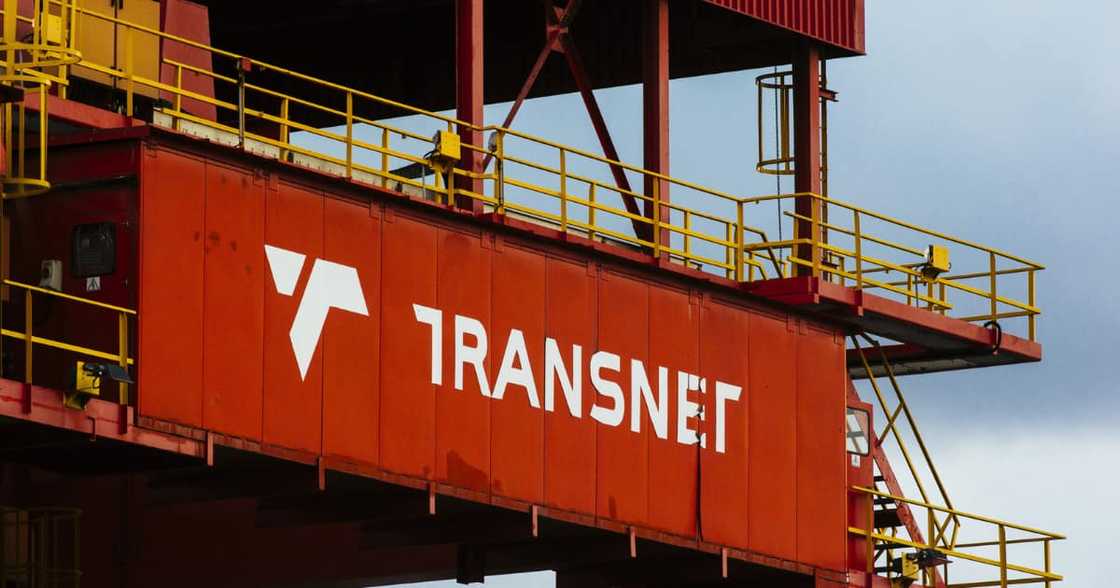Transnet Port Terminals Systems Hacked, Ships Bypass South African Ports
- Transnet Port Terminals issued a statement to the public in which the company declared a force majeure due to a cyberattack on Monday
- It has been reported that Transnet's computers have been offline since last week Thursday and the company is yet to determine the source of the attack
- As a result of the cyberattacks, importers are being heavily impacted because ships have started to bypass South African ports
PAY ATTENTION: Click “See First” under the “Following” tab to see Briefly News on your News Feed!
PAY ATTENTION: Click “See First” under the “Following” tab to see Briefly.co.za News on your News Feed!
Due to a cyberattack, Transnet Port Terminals have had to declare a force majeure to their customers on Monday. The cyberattack has affected Transnet's entire operations.
According to a report by TechCentral, Transnet Port Terminals had previously downplayed the severity of the cyberattack; however, this changed on Monday because the port terminal was unable to carry out its operations.

Source: Getty Images
Transnet Port Terminals issued letters to their customers stating that the cyberattack was sabotage and Ports of Durban, Ngqura, Port Elizabeth and Cape Town container terminals were currently not operating.
PAY ATTENTION: Never miss breaking news – join Briefly News' Telegram channel!
PAY ATTENTION: Never miss breaking news – join Briefly News' Telegram channel
The implication of Transnet's force majeure (unforeseeable circumstances that prevent an entity from fulfilling a contract) has been that ships have now started to bypass ports in South Africa. Many are being rerouted to Port Maputo while other ships have been skipping the African continent completely, according to a report by Business Insider.
This has had a devastating impact on importers who are unable to receive essential cargo for their business operations and will have to wait a considerable amount of time to access containers.
While it is yet to be determined how long the Transnet's systems will be offline, the company stated on Tuesday that it expects to lift its force majeure soon. The company said it would with shipping lines directly to ensure that operations are able to continue.
According to Business Insider, Transnet Port Terminals computers went offline on 22 July. The company is yet to announce the details of the cyberattack.
South Africa’s readiness to deal with ransomware attacks under the spotlight
Briefly News previously reported that cyberattacks are more likely to occur in South Africa than any other African country. That is because South Africa is ranked third in the world for the highest number of users experiencing targeted ransomware attacks.
It is a scary statistic considering that most South Africans have embraced the Fourth Industrial Revolution and are now transacting more online.
Ransomware attacks are not new in South Africa. Several companies have been in the recent past, Daily Maverick recently reported. In ransomware attacks, malware encrypts files on a device or network, making the system inoperable.
The people behind these types of cyberattacks typically demand a ransom in exchange for the release of data.

Read also
Gupta associate linked to corruption to appear in court after being nabbed on his way to Dubai
PWC Forensics Technology Solutions leader, Junaid Amra, believes companies in the manufacturing and mining industries are most likely to come under attack.
"They face a myriad of different cyber threats. But most local companies have been very relaxed in regards to beefing up their IT security. They are not prioritising the implementation of the appropriate mitigation strategies.
"Technology is constantly evolving and the adoption of various mechanisms influences more attacks on organisations. A ransomware attack had far reaching and potentially devastating consequences.
"Companies in the mining and manufacturing industries must ensure that they employ the correct controls to improve security and protect their assets," he said.
Enjoyed reading our story? Download BRIEFLY's news app on Google Play now and stay up-to-date with major South African news!
Source: Briefly News



